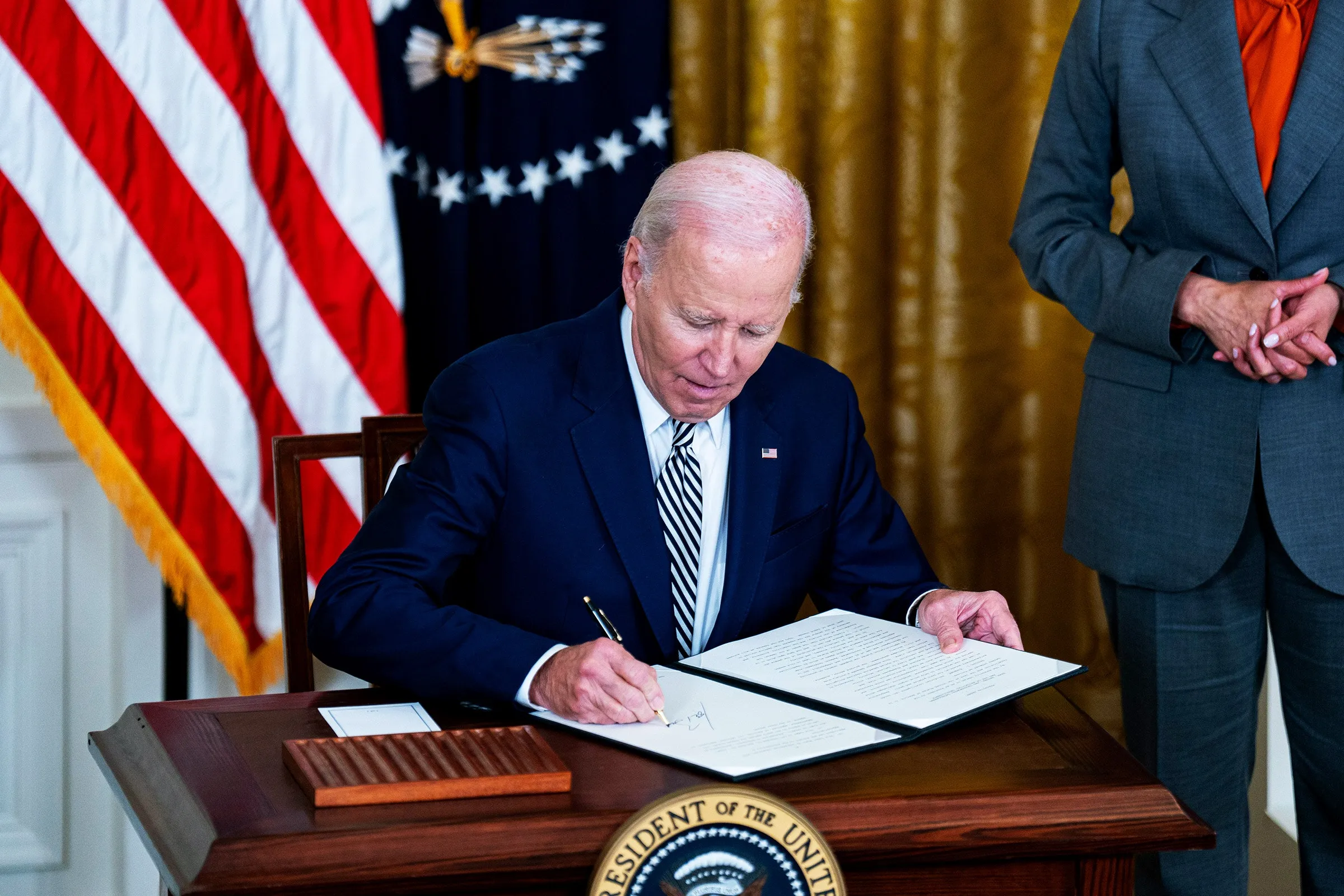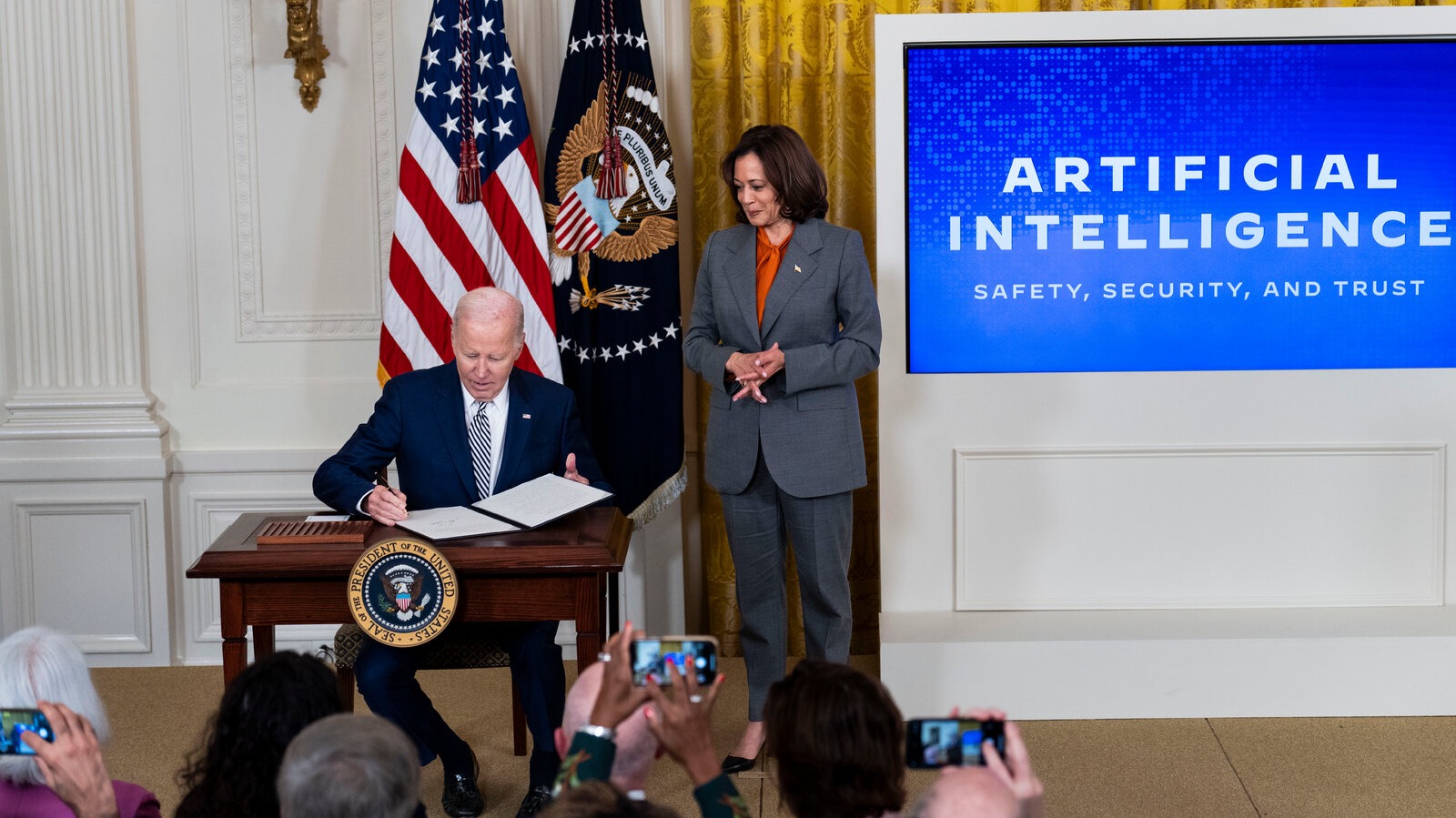Efforts to challenge President Joe Biden’s executive order on artificial intelligence (AI) are intensifying as the first major deadlines approach, drawing opposition from the tech lobby, GOP lawmakers, and conservative activists.
The focus of their resistance is Biden’s use of emergency powers, specifically the Defense Production Act (DPA), to compel tech companies to provide information to the Commerce Department regarding advanced AI projects using significant computing power.
Biden argues that the national security threat posed by AI justifies the use of the DPA, a law granting broad powers over private companies to the federal government.

Biden AI Executive Order Business
However, critics view this as executive overreach, with Senator Mike Rounds stating, “There’s not a national emergency” on AI. This sentiment reflects concerns that Biden’s approach deviates from the DPA’s intended use.
The resistance reveals how the quest to establish safety standards for emerging technologies like AI can become entangled in broader political disputes over private enterprise regulation. Lawmakers are slowing down AI regulation, and discussions on potential changes to the DPA are underway.
A group associated with the conservative Koch network has submitted information requests and a lawsuit against the Commerce Department. Tech lobbyists are signaling potential legal challenges when the Commerce Department begins exercising its newfound AI authority.
Biden’s executive order, using the DPA, empowers the Commerce Department to set guidelines and collect reports from tech companies engaged in training and testing highly capable AI models.
While past presidents have used the DPA for non-wartime purposes, critics argue that this unconventional use threatens innovation in the AI sector.
Tech lobbyists, such as Carl Szabo of NetChoice, view the reporting requirements as a violation of executive authority and anticipate legal challenges. Adam Thierer from the R Street Institute argues against using the DPA to regulate AI systems extensively.
Republican lawmakers, including Senate Commerce staff, are exploring DPA reforms to counter the AI executive order. The Americans for Prosperity Foundation, linked to the Koch brothers, has filed FOIA requests and a lawsuit, seeking agency records on the DPA and AI.
The broader anti-regulation push also faces challenges from the Supreme Court, considering a lawsuit tied to the Koch network. The outcome could impact the AI executive order, relying on federal agencies’ regulatory efforts.
Congressional Democrats largely support the administration’s treatment of advanced AI as a national emergency but acknowledge potential challenges in invoking the DPA for industry reporting requirements.
Despite concerns about the heavy-handed use of the DPA, observers note that, with a dysfunctional Congress unable to pass tech regulations, the DPA remains a rare avenue for Washington to address AI concerns.
The financial incentive to slow down AI industry regulation is already evident, as seen in the opposition against regulatory measures voiced by venture capital firms like Andreessen Horowitz.























